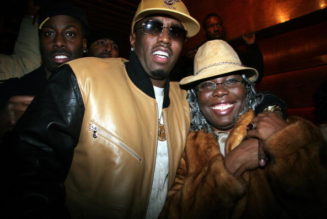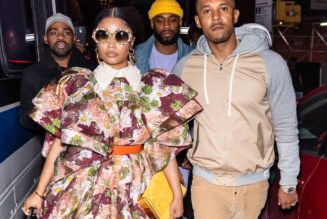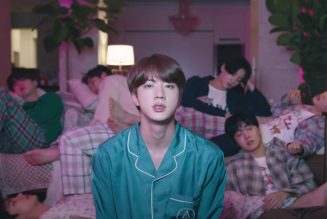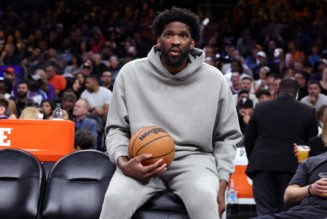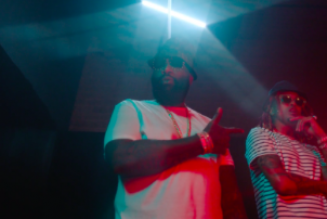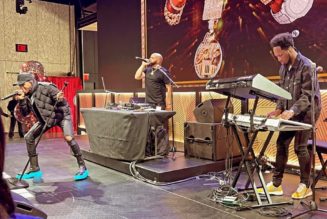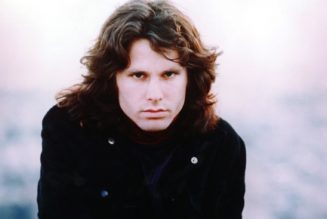
Mostly, though, Lachey, a veteran host and contestant on reality shows including Newlyweds, Clash of the Choirs, The Sing-Off, Dancing With the Stars and Drop the Mic, is also glad that he gets to judge this time, with 106 & Park‘s Rocsi Diaz taking over hosting duties on the series.
Billboard spoke to Lachey on the eve of the show’s debut to find out what he learned sitting next to Grimes, how the avatars unlock hidden potential, and the powerful message hidden in the show’s otherworldly shell.
How did you get involved in this show?
Lachey: It started with The Masked Singer and playing a different role while performing while singing, which is what Alter Ego is — it’s that on steroids. I had a great experience with everyone at Fox, and the opportunity to step into something different was really exciting, and it’s my first time judging and and not hosting.
What’s being on the panel allow you do that you couldn’t during your previous hosting runs?
Lachey: As a host, you know everything that’s going on — you’re a traffic cop. So on this show, Rocsi Diaz knows all the backstory and the true identities and personalities of the true human beings [behind the avatars], whereas the four of us had no clue. So it’s fun to go in with no pre-conceived notions, and watch the performances in real time and accept them for what they were. These are all people who have talent, who love music and this is their opportunity to realize that dream.
Did you know any of the other judges on the panel before?
Lachey: I knew Will from touring and I know his management, though we’ve never worked together. Alanis I’ve met, but we’ve also never worked together; I’m a huge fan of her talent. And Grimes is such a unique personality. Honestly, I didn’t know too much about her, but man, did I come away with such an appreciation for her and her insight. She looks at the world and music in such a different way than I ever have. You take those four personalities, which are a really, really diverse, powerful panel who all look at music in a different way. That’s what you want on a judging panel — you want different angles. But also I’ve never felt older in my life than sitting next to Grimes and talking about music. I felt like an old fuddy-duddy. She’d rather be a robot if she had the choice.
It feels like the ultimate mashup of Masked Singer, The Voice and American Idol, but, as you said, with this new twist.
Lachey: The Masked Singer is known celebrities in disguise. These are everyday people trying to realize their dream and maybe they have stage fright, anxiety or self-image issues, and they felt they were not in a position to step on stage as themselves, and through this alternate persona, they can unlock the vault to their potential. It’s so exciting to see great talent realized. I walked in a bit skeptical about how it would work — could you buy a performance from an alter ego, could it work? — and I can honestly say, and not just because I’m on it, it does. And you’re watching these performances and buying every bit of it.
What is it about not focusing on how someone looks that makes it easier to judge their singing?
Lachey: You’re still making a judgement and still seeing a visual, but you’re buying into a different version of who they are. They participate in creating the avatar, and when they reveal themselves at the end of the episode, I can’t tell you how many times my jaw hit the floor. “What? I never saw that coming!” It’s that age-old lesson of never judge a book by its cover. What I can say is that every one of them brought incredible talent to the stage … it’s hard to believe there are any great singers left undiscovered.
Not to blow smoke, but you’re a handsome man, you know that. Wondering if you’ve ever felt judged on your looks versus your vocals?
Lachey: Maybe there was a small element of that when we first started as a group [98 Degrees] on Motown Records. People assumed if we were on Motown, we were African-American. … But I went to a performing arts school and being on stage always felt natural to me, it was never intimidating to me from an anxiety standpoint. But for some people, it’s something they struggle with and it inhibits them from giving their best. To be liberated by creating this alter ego is magic man. It’s cool to see that happen.
You have a singer with Tourette’s syndrome, people who’ve been misgendered, and others with body image struggles. But all those things really do seem to vanish when they are singing. Did that surprise you?
Lachey: Yes, and I think the most powerful lesson that came out of it — if you’re someone who’s struggled with your identity or self-confidence — is that when you have the opportunity to come out as themselves, at the end I liked them more as themselves; their humanity really shines through. There’s a humanity behind those alter egos and in the music and that’s unstoppable, and it cuts right through.
The singers are great as avatars, but do you think winning this show could pave a path to success in the music business?
Lachey: I think there’s a real opportunity for the winner to go on to have a career as an alter ego. I was told the other day that 14 of the 15 biggest influencers in the world are avatars. The idea that you have to be a human on stage to have a career is slipping away. It won’t permanently go away, but the opportunity for an alter ego is real.
There’s a clip from the show where you say, “We all deserve to be who we are, how we are, the way we want to be.” That feels like an important message in everyday life, no matter what you’re doing.
Lachey: I can’t help but be moved by the back stories that led these singers to this point where they they felt they needed an alter ego. They all deserve to live their own truth. Even if they don’t win and don’t have a future as an alter ego in the music biz, if all the contestants take away from this show that “I am powerful and comfortable and embrace who I am,” then that’s great.


